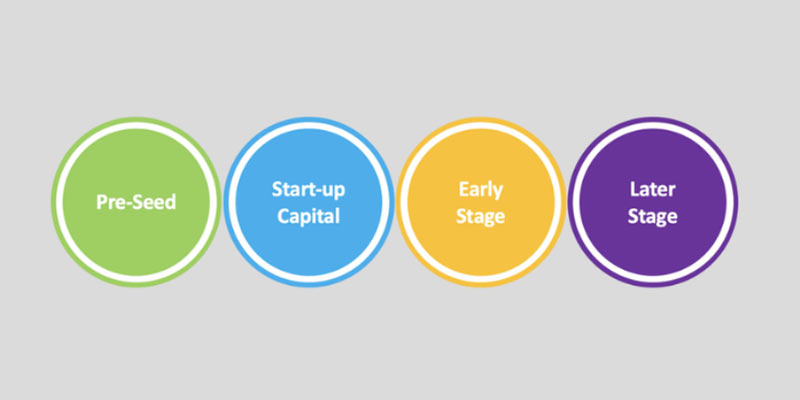Understanding Venture Capital
Triston Martin
Dec 05, 2023
Venture capital (VC) can seem complex and intimidating, but it doesn't have to be. At the heart of venture capital investments is a simple partnership between ambitious entrepreneurs and savvy investors with one common goal - creating long-term value.
If you are unfamiliar with this form of financing or want to know more about how it works, you have come to the right place! In this blog post, we will explore all aspects of venture capital - from how it works to its benefits for startups - so that you can decide whether investing in VC aligns with your business goals.
What is Venture Capital

Venture capital (VC) is a form of financing for startups that enables them to access the resources they need to develop and grow their business. Unlike traditional forms of financing, venture capital focuses on long-term investments in innovative companies with high growth potential.
Venture capitalists provide funding and expertise to help startups launch successfully and create value over time.
What Is a Venture Capital Firm
A venture capital firm is an investment company that manages venture capital funds and makes the capital from those funds available to startups. These firms typically invest in high-growth companies in exchange for equity ownership or convertible notes, debt instruments that can eventually be converted into equity ownership.
What Do Venture Capital Firms Do
Venture capital firms are responsible for investing in and supporting early-stage companies that have the potential to become profitable. The firms will evaluate a startup's business model, team, technology, and competitive landscape before deciding whether or not to invest.
Once they decide to support the venture, they provide mentorship and resources to help the company grow and succeed. VC firms often take an active role in helping startups develop their operations and expand into new markets.
They also aid them in connecting with customers, partners, distributors, and other VCs. In return for their investment, VC firms typically receive a percentage of equity or ownership stake in the startup. By providing funding and resources when needed, venture capital can propel a startup to success.
Ultimately, venture capital is invaluable in helping startups reach their potential and enabling entrepreneurs to turn their visions into realities. It is a powerful financing tool that can make a difference for innovators with big ideas!
Whether you are considering seeking VC funding or just interested in learning more about this form of investing, it's important to understand how venture capital works and the benefits it can offer your business.
How Does Venture Capital Work
Venture capital (VC) is a form of financing specialized firms provide to companies with high growth potential. The VC firm provides the capital in exchange for an equity stake in the portfolio company and some degree of influence over its operations.
The process begins with entrepreneurs submitting business plans to VC firms. If the plan appears promising, the VC firm will conduct due diligence, which entails a deep dive into the business model, product, management, operating history, and other areas pertinent to assessing the quality and viability of the business idea.
Once due diligence is complete and all parties are satisfied with the results, a deal can be struck between entrepreneur and investor.
Generally speaking, venture capitalists provide funds in multiple rounds, with each round offering more capital and higher valuations based on progress made since the previous round. This process usually continues until either the company is sold or taken public.
At every step of this process, venture capitalists are actively involved in helping run the portfolio company. They provide mentorship and guidance to entrepreneurs while leveraging their market knowledge to help create long-term value for all stakeholders.
In short, venture capital allows ambitious entrepreneurs to access funds necessary for growth and success while allowing investors to pursue high returns with minimal risk. Though complex, it's a simple partnership between two parties with one common goal: creating long-term value. And that's how venture capital works!
Stages of Venture Capital Investing

Venture capital investing is an important startup funding source and involves several stages. Understanding the various stages of venture capital investment can help entrepreneurs determine if VC suits their business.
Seed Round Funding
Seed round funding is the first stage in the venture capital process, during which investors provide small amounts of capital to enable a startup to develop its business plan and create a minimum viable product (MVP).
This early-stage funding often comes from friends and family or angel investors. It helps companies test their products and services while building their customer base.
Early Stage Funding
The next stage of venture capital investment is known as early-stage funding, typically in series A, series B, and Series C rounds. At this stage, startups need more capital to further develop their product or service and begin scaling up operations. This funding can come from venture capitalists, strategic investors, or other sources.
Late Stage Funding
Once a startup generates revenue and shows signs of robust growth, it may be ready for late-stage VC funding – usually in Series D, E, and F rounds. These investments help companies prepare for an initial public offering (IPO) or acquisition by another firm. The ultimate goal is to exit the investment at a profit so that venture capitalists can distribute returns to their investors.
What Are Venture Capital Funds
Venture capital funds are investment vehicles that finance startups and early-stage companies. These funds pool money from multiple investors to provide the capital and expertise needed for a company to scale and grow successfully.
The fund's general partners manage investments made by limited partners, typically high-net-worth individuals or institutional investors such as pension funds, university endowments, and foundations.
The fund takes equity stakes in its portfolio companies to increase their value over time. In exchange for taking on riskier investments, venture capitalists add value through active involvement in their portfolio companies' strategic decisions.
This can include providing advice on product development, recruitment of key personnel, customer acquisition strategies, or other areas where they have expertise.
Most venture capital funds have a target return multiple of three times the initial investment, with exit strategies including mergers and acquisitions or publicizing the portfolio. The VC firm also earns revenue through management and performance fees, typically as two and twenty — 2% of total assets under management (AUM) plus 20% of profits.
Venture capital can provide the necessary funding to help early-stage companies reach their potential and drive innovation. This type of financing carries risks and rewards, which is why entrepreneurs and investors alike need to understand how venture capital works before embarking on a partnership.
How to Invest in Venture Capital
Setting up a venture capital fund is a challenging task. It requires extensive knowledge of the startup and investment landscape and significant capital to finance investments. But there are several ways you can get involved in venture capital investing:
- Invest directly in startups: You can invest directly into a startup by purchasing equity or convertible debt securities from the company. This option is typically more suited for experienced investors with the resources to do their due diligence on potential investments.
- Participate in accelerator programs: Accelerator programs offer mentorship and other services that help startups succeed. Investors may have opportunities to invest in these companies, usually through an online platform or angel network such as AngelList.
- Invest in a venture capital fund: If you do not have the resources to invest directly, you can join a venture capital fund instead. These funds are managed by experienced investors who select and manage investments on your behalf.
FAQs
Why Is Venture Capital Important?
Venture capital is a key source of funding for startups and early-stage companies. It can provide the necessary resources to help these firms pursue their vision and create long-term value. By investing in innovative companies, venture capitalists are helping drive innovation and growth throughout the economy.
What Are the Benefits of Venture Capital?
The benefits of venture capital include access to expertise, mentorship, networking opportunities, and potentially higher returns than other investment options.
Is Venture Capital Risky?
Venture capital investments are considered risky because they involve investing in early-stage, unproven businesses. However, when managed carefully, venture capitalists can reap significant rewards for their effort.
Conclusion
Venture capital is an important funding source for startups and provides several benefits, including access to expertise, mentorship, networking opportunities, and potentially higher returns than other investment options. Understanding how it works is key to deciding whether venture capital aligns with your business goals. With the right strategy and resources in place, venture capitalists have the potential to achieve long-term value from their investments.







